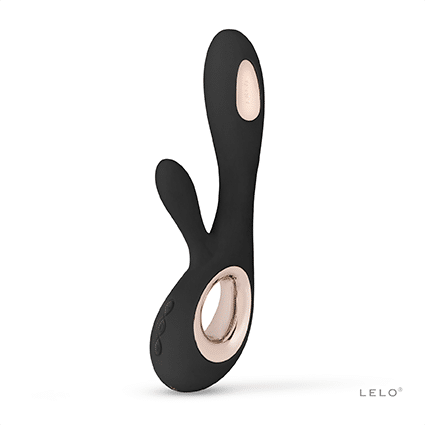Blog
Alcohol and Sperm: Effects on Male Fertility

Does alcohol affect sperm? That’s a simple yet controversial question with a complicated answer
Drinking alcohol as a way to relax at the end of the week, during a night out with friends on a weekend, or enjoying it as part of a meal at dinner with your partner is the norm for many people.
Because it’s so common to consume alcohol in many cultures and households, not many people stop to think about whether drinking alcohol is healthy and how it might affect their bodies.
Unless you’re one of the many men who had to deal with a “whiskey dick” at the worst possible moment after a night out – then you’re very much aware of the effect alcohol has on you.
The truth is, “whiskey dick” is not the only thing you might experience as a man if you like to enjoy a drink or two on a regular basis, especially if you’re trying to conceive.
So, let’s talk about how alcohol affects sperm health and male fertility, if there is a way to enjoy alcohol without harming your health and ways to boost sperm health.
Does alcohol affect sperm when trying to get pregnant?
The short answer is yes.
Alcohol can significantly affect sperm health, which might pose challenges for couples who are trying to get pregnant. Countless studies over the years have shown that alcohol has a severe negative impact on sperm health in a variety of ways:
Decreases sperm concentration
Heavy alcohol consumption can decrease sperm concentration and other metrics. A study that surveyed over 1,000 Danish men found men who consumed alcohol on a regular basis had lower sperm concentration and sperm count. This was true for men who consumed five units of alcohol per week and for those who consumed up to 25 units per week.
Impairs sperm morphology
Regular alcohol consumption has also been shown to negatively impact normal sperm development. Sperm morphology abnormalities can negatively impact sperm’s ability to swim towards the egg and fertilize it, which makes conception more challenging.
Increases chances of sperm DNA fragmentation
Alcohol can also cause damage to sperm DNA by causing sperm DNA fragmentation. What does that mean for you? Well, to put it in simple terms, damaged sperm DNA might cause genetic problems for the fetus and the child.
Lowers testosterone levels
Testosterone is a sex hormone that plays a key role in male health and fertility. Alcohol consumption is shown to disturb testosterone production and lower testosterone levels in males.
Low testosterone levels may lead to lower sperm count, reduced sperm quality, motility, and sexual dysfunction. Low testosterone may decrease your sex drive.
Also, impaired testosterone caused by heavy alcohol consumption can lead to testicular atrophy, meaning your testicles will start to shrink. These changes to your testes can lead to impotence and fertility issues.
Negatively impacts erections and sexual satisfaction
Numerous studies show that alcohol consumption is associated with various sexual dysfunctions in men. It disturbs the natural blood flow, which can make it hard to achieve and sustain an erection (that’s where “whiskey dick” gets its name from). Alcohol consumption is one of the leading causes of impotence in men.
But that’s not all.
Due to reduced sensitivity, consuming alcohol might cause delayed ejaculation or anorgasmia (no orgasm). However, one of the most common side effects reported by men due to alcohol consumption is premature ejaculation.
How much alcohol does it take to affect sperm?
Alcohol consumption is widely accepted all around the world and is considered part of adult socialization in many cultures. That might make you wonder – is all alcohol consumption terrible for sperm? How much alcohol is too much alcohol?
Well, the meta-analysis of over forty studies on the topic showed that the adverse effects of alcohol on male fertility depend on how much alcohol one consumes:
- Consuming less than 7 units of alcohol per week doesn’t cause any significant changes in semen index.
- Consuming over 7 units of alcohol per week negatively impacts semen index and male sex hormones.
However, some research suggests that while moderate alcohol consumption doesn’t cause adverse sperm health effects, consuming even a small amount of alcohol daily can have a negative effect on male fertility.
Overall, the healthiest individuals were those who didn’t consume any alcohol or consumed alcohol on occasion only.
How long does alcohol affect sperm?
Before you freak out that your drinking habits might forever hinder your chances of conceiving the natural way, hear us out. Here’s the good news – negative alcohol effects on sperm can be reversed.
Researchers followed a man with a history of alcohol abuse over the course of six years as he and his partner tried to conceive. After three months of withdrawal from alcohol, even after years of heavy alcohol abuse, the man saw significant improvements in his sperm health.
It takes around three months for the sperm to regenerate, on average. Chances are that if you quit drinking and work on improving your lifestyle and health, it can positively impact the sperm regeneration cycle and the quality of the sperm that’s produced.
How to boost sperm health and male fertility
Lifestyle plays a key role in male fertility and the quality of your sperm. So, if you want to boost your sperm health and fertility, a good place to start is by making positive lifestyle changes.
Aside from limiting your alcohol consumption or quitting drinking altogether, here are four lifestyle changes you can make to boost your fertility:
Eat a healthy and well-balanced diet
Your diet and what you choose to eat on a regular basis have a huge impact on your fertility and sperm health. So, one of the easiest ways to boost your sperm health is to improve your diet.
A meta-analysis found that men who consume a healthy and balanced diet on a regular had better sperm concentration, count, and motility.
What’s a healthy and balanced diet? Well, in this meta-analysis, a healthy diet is the Mediterranean diet, which includes consuming lots of fresh vegetables, fruit, legumes, healthy fats, and seafood.
Increase your activity levels
Maintaining a healthy weight and leading an active lifestyle is key for optimal health. Exercise boosts your testosterone levels, which is a key hormone in male fertility.
One study found that men who lifted weights or spent time doing outdoor activities for at least 3.2 hours every week had sperm counts 42% higher than men who didn’t lead an active lifestyle.
Small changes make all the difference when it comes to your activity levels. Another study found that when obese individuals started to incorporate aerobic exercise into their everyday lives, there was a significant improvement in their sperm quality.
Quit smoking
It’s probably not a surprise that smoking is just as bad for your sperm health and fertility as alcohol is. A large meta-analysis that analyzed over 20 studies with over 6,000 participants found that smoking significantly reduces sperm count.
So, if you’re a smoker, consider tackling this bad habit to increase your chances of improving fertility when you’re trying to conceive.
Get more sleep
Good sleep is key to good health, and that includes sperm health, too. Researchers surveyed 981 healthy males to see if the amount of sleep they get at night has an impact on their sperm. It turns out it does.
Males who slept fewer hours had lower sperm count and sperm survival rates compared to those who slept more. Short sleepers also had lower sperm motility compared to longer sleepers.
According to the National Heart, Lung, and Blood Institute, adults need at least seven hours of sleep on average, so try to improve your sleep hygiene and get at least the recommended amount of sleep every night.
When to seek medical help
Many different lifestyle and environmental factors can affect male fertility, such as genetics, medications, or chronic illnesses. If you’ve been trying to conceive for a long time without success and have made all the lifestyle changes you can, it might be a good idea to seek medical advice.
A medical professional can help on your fertility journey by running some tests such as male hormone analysis and semen analysis and then help you find a way to improve your chances of conceiving.
Alcohol and male fertility: the bottom line
Despite alcohol being socially accepted by many cultures around the world and being a huge part of our social lives, alcohol consumption does come with consequences for male fertility. Especially heavy alcohol consumption.
Chronic alcohol consumption can negatively impact sperm health and male fertility in various ways:
- Lowers testosterone levels
- Decreases sex drive and libido
- Causes erectile dysfunction and premature ejaculation
- Negatively impacts sperm count, shape, concentration, and motility
All these negative side effects can pose challenges for couples who are trying to conceive.
However, not all is lost – it’s possible to improve your sperm health and fertility by making positive lifestyle changes, such as:
- Limiting your alcohol consumption or quitting drinking altogether
- Quit smoking
- Maintain healthy weight
- Eat a well-balanced, whole-food-based diet
- Lead an active lifestyle
If you do enjoy an alcoholic beverage from time to time, either with food or in social situations, don’t worry. As long as you drink alcohol only occasionally, it won’t have negative effects on your sperm health or fertility.
Discover pleasure with:











![5 Best Life Size Male Masturbators [Video Demonstration] 5 Best Life Size Male Masturbators [Video Demonstration]](https://i2.wp.com/www.mysextoyguide.com/wp-content/uploads/2025/07/RIDMII-Fiora-Sex-Doll-15.jpg?w=1300&resize=1300,800&ssl=1)


![7 Best Rotating Male Masturbators [Video Demonstration] 7 Best Rotating Male Masturbators [Video Demonstration]](https://i0.wp.com/www.mysextoyguide.com/wp-content/uploads/2022/10/Best-Rotating-Male-Masturbator.jpg?w=1300&resize=1300,800&ssl=1)


